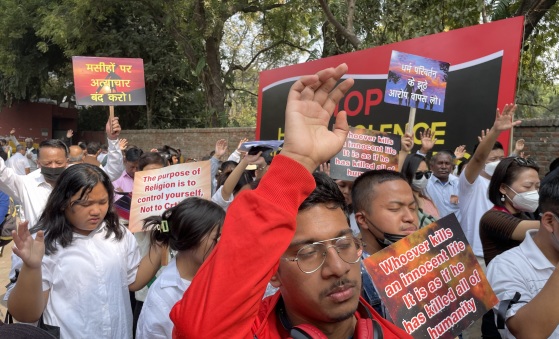
Nimisha Priya, an Indian nurse from Kerala, is facing execution in Yemen on 16 July after being convicted of killing a Yemeni man in 2018. Her case has triggered diplomatic efforts and legal appeals, including a petition now before India’s Supreme Court.
The court is set to hear the petition on 14 July, urging the Indian government to intervene before it is too late.
Priya, 37, had travelled to Yemen in the early 2010s to work as a nurse and support her ageing parents. Despite the outbreak of civil war in the country, she remained and later opened a small clinic. In order to comply with local laws requiring foreign medical workers to have a Yemeni partner, she went into business with Talal Abdo Mahdi.
According to Priya’s testimony, Mahdi forged documents to claim they were married, and later subjected her to abuse, confinement, and financial exploitation. She alleges he confiscated her passport, administered sedatives, and prevented her from leaving Yemen.
In 2018, Priya was convicted of killing Mahdi. She claims the act was not intentional, explaining she attempted to drug him in order to escape the country, but the dosage proved fatal. Her death sentence was upheld in 2020 and reconfirmed by Yemen’s highest Houthi-led judicial authority in 2023.
She is currently being held in the capital, Sana’a, which is under the control of the Houthi administration. India does not maintain official diplomatic ties with the Houthis, making intervention challenging. However, Indian officials say they remain in contact with local authorities and are pursuing all possible options.
Priya’s mother, Premakumari, travelled to Yemen last year to plead with Mahdi’s family to forgive her daughter and accept "diyat," a form of financial compensation allowed under Yemeni law to avoid execution. The family declined the offer, despite fundraising efforts led by the “Save Nimisha Priya International Action Council.”
The case has highlighted a wider issue of Indian citizens imprisoned overseas. Government data shows that over 10,000 Indian nationals are currently being held in 86 countries, many of them in Gulf nations. Saudi Arabia and the United Arab Emirates each have more than 2,000 Indians in custody, followed by Nepal, Malaysia, China, and others.
India has signed agreements with several countries to allow prisoners to serve their sentences back home, including the UK, UAE, and Saudi Arabia. However, returns under these agreements remain rare. Since 2023, only eight prisoners have been transferred to India, three from Iran, three from the UK, and one each from Cambodia and Russia.
The Ministry of Home Affairs has acknowledged the slow pace and said it is working on new agreements to expand repatriation efforts.
The outcome of Priya’s case remains uncertain, but her situation has brought urgent attention to the struggles faced by Indian nationals abroad and the complexities of international justice and diplomacy.
Adapted from AsiaNews.




